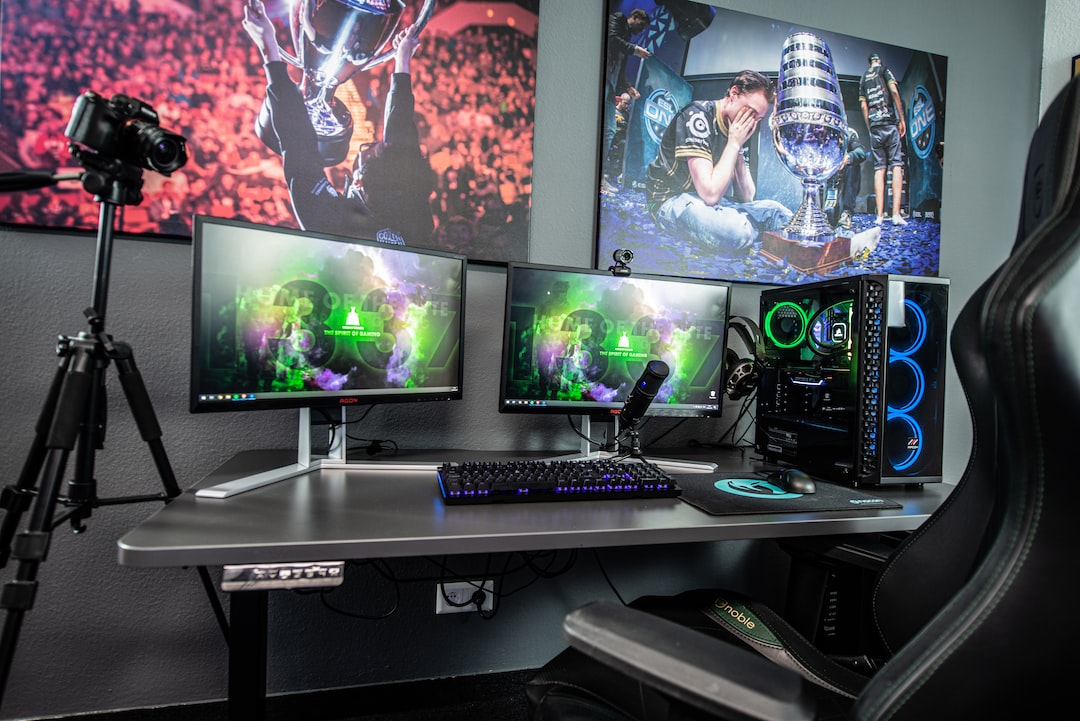Gaming Addiction: Understanding the Risks and How to Stay Balanced
In recent years, the popularity of video games has skyrocketed, with millions of people of all ages now enjoying the world of gaming. While gaming can be a fun and thrilling experience, it is important to be aware of the potential risks and challenges it can pose, particularly when it comes to addiction. In this blog post, we will explore the concept of gaming addiction, its potential consequences, and provide tips on how to stay balanced and enjoy gaming responsibly.
What is Gaming Addiction?
Gaming addiction, also known as internet gaming disorder or gaming disorder, is defined as a pattern of excessive and compulsive gaming behavior that leads to negative impacts on various aspects of an individual’s life. Just like any other addiction, gaming addiction can be challenging to overcome and can have serious consequences on an individual’s physical and mental health, relationships, education, and other important areas of life.
Understanding the Risks of Gaming Addiction
One of the major risks of gaming addiction is the impact it can have on an individual’s psychological well-being. Spending excessive amounts of time playing video games can lead to symptoms of anxiety, depression, social isolation, and decreased academic or work performance. Additionally, gaming addiction can disrupt one’s sleep patterns, leading to insomnia or other sleep disorders.
Another risk of gaming addiction is the potential impact on physical health. Excessive gaming can lead to a sedentary lifestyle, which increases the risk of obesity, cardiovascular disease, and other health issues associated with a lack of physical activity. Additionally, long hours spent in front of a screen can strain the eyes and lead to vision problems.
Gaming addiction can also have negative consequences on relationships. Spending excessive time gaming can lead to a neglect of personal relationships, both romantic and familial. It can create conflict and tension within relationships, as well as contribute to feelings of loneliness and isolation.
How to Stay Balanced and Enjoy Gaming Responsibly
While the risks associated with gaming addiction are real, it is important to recognize that gaming itself is not inherently bad. Like any other form of entertainment, gaming can be enjoyed responsibly, and there are steps one can take to maintain a healthy balance between gaming and other aspects of life.
1. Set Priorities and Establish Boundaries: It is essential to identify and prioritize your responsibilities and set boundaries around gaming. Determine how much time you can realistically devote to gaming without neglecting other important areas of your life, such as work, studies, relationships, and self-care.
2. Schedule Gaming Time: Allocate specific time slots for gaming, ensuring that it doesn’t interfere with your daily routine or obligations. By adhering to a schedule, you can better manage your time and avoid excessive gaming sessions.
3. Engage in Other Activities: Variety is key to maintaining a balanced lifestyle. Make sure to engage in other hobbies, such as exercise, reading, socializing, or pursuing creative endeavors. This will help you diversify your interests and prevent gaming from becoming the sole focus of your life.
4. Seek Social Interactions: Gaming can be a socially engaging activity, but it is crucial to maintain real-life social connections as well. Dedicate time to spending with friends and family, participating in group activities, and nurturing meaningful relationships outside of the gaming world.
5. Practice Self-Care: Take care of your physical and mental well-being by prioritizing self-care. Engage in activities that promote relaxation, such as meditation, exercise, or taking breaks from screens. Taking care of yourself holistically will help you find balance in all aspects of life, including gaming.
6. Be Mindful of Warning Signs: It is important to be self-aware and recognize the warning signs of gaming addiction. Some signs to watch out for include neglecting personal hygiene, experiencing withdrawal symptoms when unable to play, losing interest in other activities, or feeling a constant need to play for extended periods.
If you find yourself exhibiting any of these signs, it may be time to seek professional help. Reach out to a mental health professional or support group specializing in addiction for guidance and support.
In conclusion, gaming addiction is a serious concern that can have detrimental effects on an individual’s well-being and overall quality of life. By understanding the risks associated with gaming addiction and adopting a proactive approach to maintain balance, it is possible to enjoy gaming responsibly and lead a fulfilling life beyond the gaming screen. Remember, moderation is the key to a healthy gaming experience.

